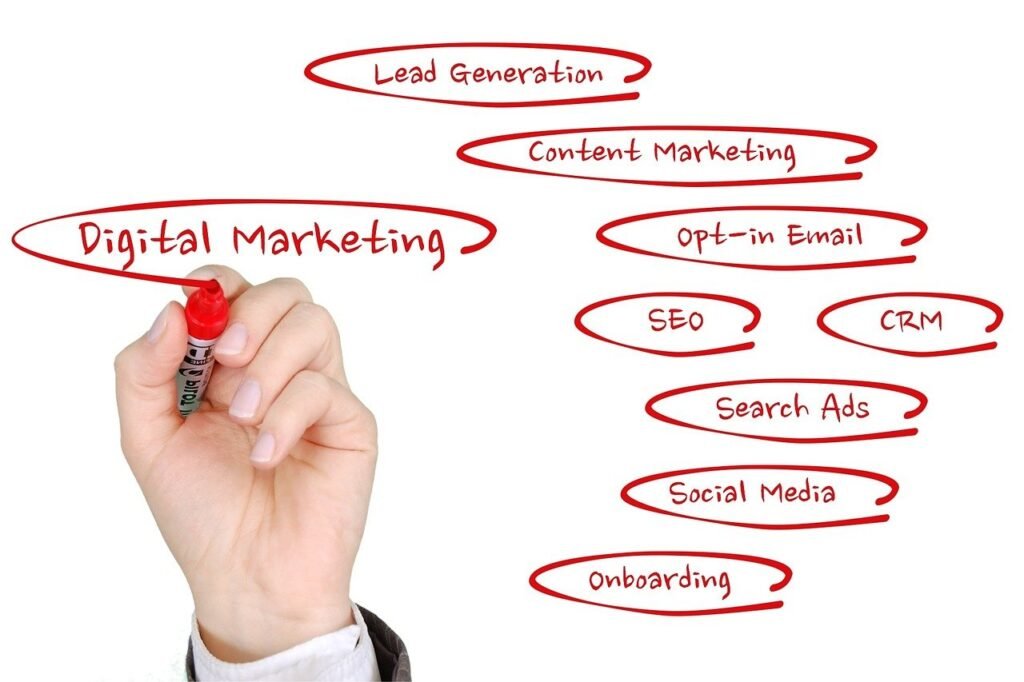The digital marketing environment is constantly changing, and nothing will be different for the year 2024. With technology changes, consumer behavior, and market dynamics moving at such speed, it is of utmost importance to stay ahead of competition. We observe the phenomenal rise of AI in 2023, and obviously, this continuing trend will alter marketing well into the next year. But AI within itself is just one piece of a larger puzzle. Consumer expectations, the economy, and changing digital platforms present a whole new battleground for the marketers of the present day. In the following paragraphs, we shall examine primary business trends impacting digital marketing in 2024.

- The Rise of Alternatives to Social Media
Social media channels continuously battle for users’ attention with new platforms emerging as a serious contender. While Meta’s Instagram Threads has become quite popular since its launch with over 100 million users every month, the platform provides a different dynamic compared with others such as X (formerly Twitter).
Rand Fishkin, digital marketing guru, feels Threads may eventually land more of the eyeballs than X. “If your brand was winning there [on X], then it’s time to ponder Threads,” he says. Brands should be trying to establish a presence on platforms like Threads, even if it means getting a username and playing around with content. Fishkin says one thing they shouldn’t do is use Threads to drive traffic away from itself—it’s about discussion and creating connections on that platform.
In 2024, social media marketers need to focus on retention more than ever, rather than traditional engagement metrics. With a decline in user attention spans, the retention of followers and the generation of long-term interactions will be more desirable than ever. For example, TikTok could change significantly how brands engage their audiences as it tests 15-minute-long video uploads. - AI Tools Integration in Social Media
AI tools are getting integrated into the social media settings for the creation of content and interaction with the audience, changing the role of marketers. TikTok customizes its feed based on AI, Instagram is testing AI stickers, and LinkedIn offers AI profile writing services for premium users.
That said, AI tools such as ChatGPT and Midjourney can help content creation but still need a human touch. From Kerry Harrison, AI trainer: It must be pointed out that the strength lie within the structure of what has been called the AI sandwich-human strategy and creativity, and AI input for research and insights. Human imagination married to AI efficiency is the winning proposition for marketing in the future.
SEO or Evolution from the User’s Perspective.
Digital marketing scenarios are being changed by AI, and SEO is not escaping this fast-paced evolution either. What that means when Google launches its Search Generative Engine-SGE or with the much-hyped AI Overviews-is that it will impact the search results. AI will work to provide a great deal of contextually relevant information to respond directly to user queries. Consequently, SEO experts will have to change their work on strategies for doing on-page SEO around the new search experience.
Marketers will have to create content for the benefit of people and not just for algorithms to stay afloat into 2024[sic]. High-quality, user-shareable content will be critical in search rankings. E-E-A-T (Experience, Expertise, Authoritativeness, and Trustworthiness) will matter a lot for Google’s evaluation process, and content that’s human-generated will have an edge in gaining user confidence over AI writing.
In the later future, SEO will greatly favor user experience (UX). Speed, in particular, has become Google’s focus on ranking favoring pages that load quickly with a great user experience, thus linking website speed and mobile responsiveness to conversion rate. Even small tweaks, for example, in page load time improvements, could result in massive boosts.
SEO or Evolution from the User’s Perspective.
Digital marketing scenarios are being changed by AI, and SEO is not escaping this fast-paced evolution either. What that means when Google launches its Search Generative Engine-SGE or with the much-hyped AI Overviews-is that it will impact the search results. AI will work to provide a great deal of contextually relevant information to respond directly to user queries. Consequently, SEO experts will have to change their work on strategies for doing on-page SEO around the new search experience.
Marketers will have to create content for the benefit of people and not just for algorithms to stay afloat into 2024[sic]. High-quality, user-shareable content will be critical in search rankings. E-E-A-T (Experience, Expertise, Authoritativeness, and Trustworthiness) will matter a lot for Google’s evaluation process, and content that’s human-generated will have an edge in gaining user confidence over AI writing.
In the later future, SEO will greatly favor user experience (UX). Speed, in particular, has become Google’s focus on ranking favoring pages that load quickly with a great user experience, thus linking website speed and mobile responsiveness to conversion rate. Even small tweaks, for example, in page load time improvements, could result in massive boosts.
While AI is becoming an important part of Google Ads, marketers may need to rethink paid marketing. In 2024, Google will roll out even more tools to optimize campaign performance on an automated basis with the aid of AI. While these tools could drive efficiency, they also limit marketers’ control over their campaigns-making it very important to treat AI as an assistant rather than a strategy killer.
Wolfgang Digital’s Managing Director, Brendan Almack warns marketers against placing complete trust in AI recommendations, especially in aspects such as Return on Ad Spend (ROAS). It is pertinent that marketers note that AI may optimize campaigns but does not necessarily share in the common understanding of the business objectives or market peculiarities. AI-generated insights are an extremely useful adjunct to human application. - Data Privacy and Sustainability in Marketing Strategy
In 2024, data privacy is still a major concern for marketers. Data breaches have raised concerns about misusing personal information. Therefore, a business should embrace transparency and build trust with consumers. KPMG reports that 86% of Americans are concerned about data privacy; companies that are candid about how they collect, store, and utilize customer data will hold a competitive advantage.
Marketers tend to tread carefully into sustainability. Now, with over 70% of consumers willing to pay a premium for sustainably produced goods and expressing environmentally concerned purchasing decisions, marketing must go hand in hand with sustainability values. More than ensuring that their products and services meet consumers’ values for the environment. - The Change in Digital Marketing Careers
With demand for digital marketing skills continuing to exceed supply, companies find it difficult to fill positions in customer experience, analytics, and AI integration. Instead, by 2024, trends suggest that the employers would be hunting down certain obscure niche skills with a fine comb. While the generalists versus specialists debate is ongoing, one thing is evident-those who will be specializing in any skill in digital marketing, whether AI, SEO, PPC, or content, are surely going to do very well for themselves.
AI knowledge will become a key skill for marketing professionals. There will be an increasing willingness to employ marketers who understand AI tools. Marketers, therefore, ought to focus on upskilling in AI, data analysis, and UX design to not become obsolete in the changing job space.
Conclusion
If you’re a digital marketer, 2024 will be auspicious, with AI, new social media platforms, and shifting consumer expectations in play. Marketers must stay ahead of trends, be it in terms of new platforms like Threads, a greater emphasis on data privacy and sustainability, or developments in AI, and set themselves up for success. Agility, creativity, and adaptability to the rapidly changing digital landscape will be their mantra throughout their existence, whether they follow SEO, fine-tune PPC, or embrace new tools.



